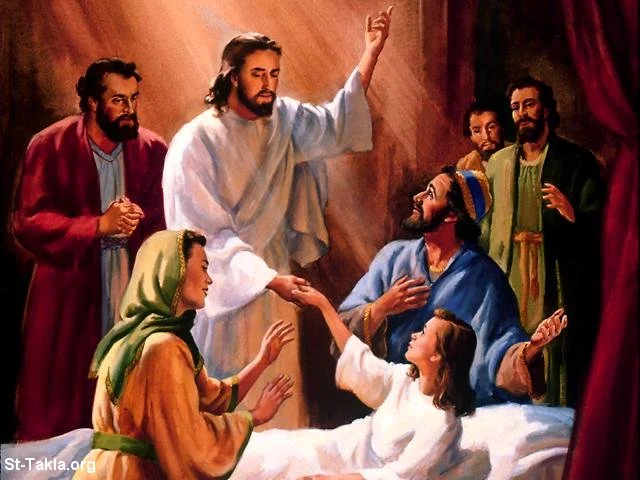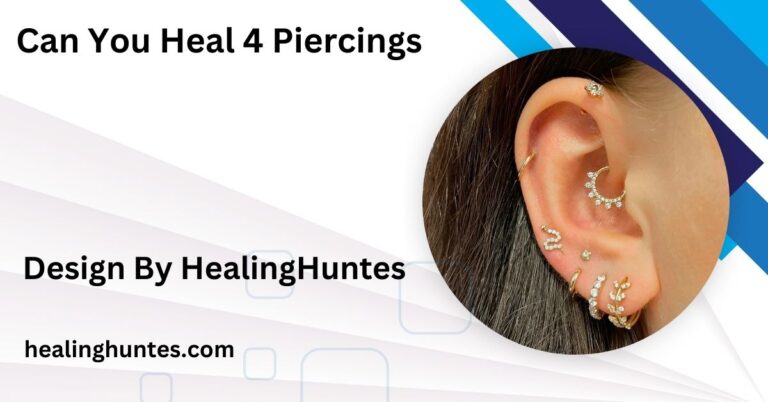Is It Gods Will To Heal A Person – A Comprehensive Exploration!
Views on healing vary; some believe it’s always God’s will, while others see it as conditional or part of His divine plan.
This article seeks to explore these questions in depth.
Exploring Healing in the Bible:

The Bible is filled with instances of physical, emotional, and spiritual healing. Throughout both the Old and New Testaments, God is portrayed as a healer. Here are a few key points regarding healing in the biblical context:
Old Testament Healing:
- Divine Healing: In the Old Testament, God is often referred to as a healer. For instance, Exodus 15:26 states, “I am the Lord who heals you.” This highlights the belief that God is actively involved in the healing process.
- Examples of Healing: Numerous stories in the Old Testament illustrate God’s healing power, such as the healing of Naaman’s leprosy in 2 Kings 5. Naaman, a Syrian commander, was healed after following the prophet Elisha’s instructions, showcasing the importance of obedience to God.
- Covenant Relationship: The Old Testament presents healing as part of the covenant relationship between God and His people. In Deuteronomy 7:15, God promises to remove sickness from His people, indicating that healing is a blessing for those who follow His commandments.
New Testament Healing:
- Ministry of Jesus: In the New Testament, Jesus is often depicted as a healer. He healed the sick, raised the dead, and restored sight to the blind, demonstrating compassion and power. Notable examples include the healing of the paralytic in Mark 2 and the woman with the issue of blood in Mark 5.
- Apostolic Healing: After Jesus’ ascension, the apostles continued the healing ministry. In Acts 3, Peter heals a lame man at the temple gate, emphasizing that healing is part of the mission of the Church.
- Spiritual Healing: The New Testament also addresses emotional and spiritual healing. James 5:14-15 encourages believers to call upon the elders of the church to pray for the sick, indicating a holistic approach to healing.
Also Read: Can Open Close Arm After Workout Bicep Heal Fast Bcops – Bicep Healing and Recovery Tips!
Different Perspectives on God’s Will to Heal:
The question of whether it is always God’s will to heal is often debated among theologians and believers.
Here are some key perspectives:
God’s Sovereignty and Healing:
Many Christians believe in God’s sovereignty, asserting that He has the ultimate authority over life and death, including healing. This perspective emphasizes that God’s will may not always align with human desires, and sometimes healing may not occur despite fervent prayers.
Faith and Healing:

Another viewpoint suggests that healing is contingent upon faith. Passages like Mark 11:24 state, “Whatever you ask for in prayer, believe that you have received it, and it will be yours.” This implies that strong faith can unlock God’s healing power, though it may also lead to questions about why some faithful individuals remain unhealed.
Purpose in Suffering:
Some believers contend that suffering can have a purpose and that God may allow individuals to endure illness or pain for reasons beyond human understanding. Romans 5:3-4 speaks of rejoicing in suffering, as it produces perseverance and character. This view posits that while healing is desirable, spiritual growth can occur through trials.
Healing as a Promise:
Conversely, others assert that healing is a promise from God, citing verses such as Isaiah 53:5, which states, “By his wounds, we are healed.” This belief suggests that Christ’s sacrifice guarantees healing for believers, and they can claim this promise through faith and prayer.
Also Read: How Long Do Cut Gums Take To Heal – A Complete Guide!
The Role of the Church:
The Church is seen as a vessel for healing through prayer, laying on of hands, and anointing with oil (James 5:14). This perspective emphasizes the community aspect of healing, where believers support one another in their struggles and pray for divine intervention.
The Importance of Faith in Healing:

However, it’s important to note that faith can manifest in various forms. Some may have unwavering faith in God’s ability to heal, while others may struggle with doubt but still seek healing. The sincerity of one’s heart and the act of seeking God can be just as important as the level of faith.
Aftermath of Healing: What Happens Next?
When individuals experience healing, whether physical, emotional, or spiritual, it can lead to profound changes in their lives. Here are some common outcomes of healing:
- Strengthened Faith: Experiencing healing can lead to a deeper faith in God. Many individuals report that their healing experiences strengthen their relationship with God and deepen their trust in His promises.
- Testimony and Encouragement: Healed individuals often become testimonies of God’s goodness and power. Their stories can encourage others facing similar challenges, fostering hope and inspiring faith within the community.
- Increased Compassion: Having experienced healing can foster a sense of compassion for others who are suffering. Healed individuals may feel called to support those in need, whether through prayer, encouragement, or practical assistance.
- Call to Service: Some people feel a calling to serve in healing ministries or support groups, desiring to help others who are struggling with illness or pain. This sense of purpose can emerge from their experiences of healing and restoration.
FAQ’s
1. Does God desire to heal everyone?
While many believe that God desires to heal, it may not always be His will for every individual, as His plans and purposes are often beyond human understanding.
2. What if I don’t experience healing?
Experiencing a lack of healing does not necessarily indicate a lack of faith. Many factors can influence healing, including God’s sovereign will and the purpose of suffering.
3. How can I pray for healing?
Pray sincerely, expressing your desires and trust in God’s goodness. It may be helpful to involve others in prayer and seek the support of your church community.
4. Is there a difference between physical and spiritual healing?
Yes, physical healing pertains to the restoration of health, while spiritual healing involves the restoration of one’s relationship with God and emotional well-being.
5. How can I strengthen my faith in healing?
Engage with scripture, pray, and surround yourself with a supportive faith community. Personal testimonies and stories of healing can also inspire and uplift your faith.
Conclusion
The question of whether it is God’s will to heal is complex, rooted in scripture and personal beliefs. While healing reflects God’s love and compassion, it carries deep complexities, and many view it as part of His promise. Seeking healing requires faith, prayer, and trust in God’s sovereignty, offering hope and strength amidst life’s challenges.






